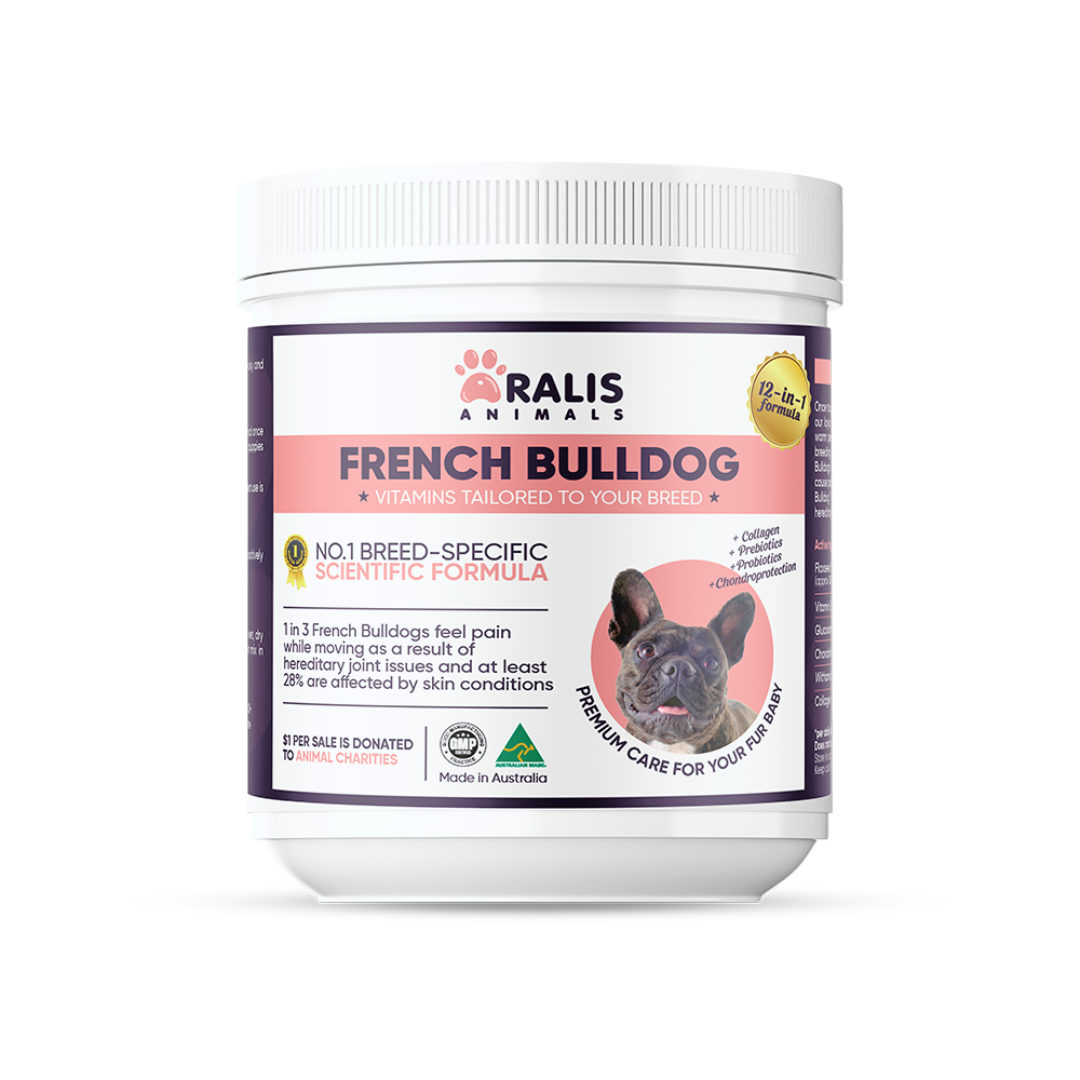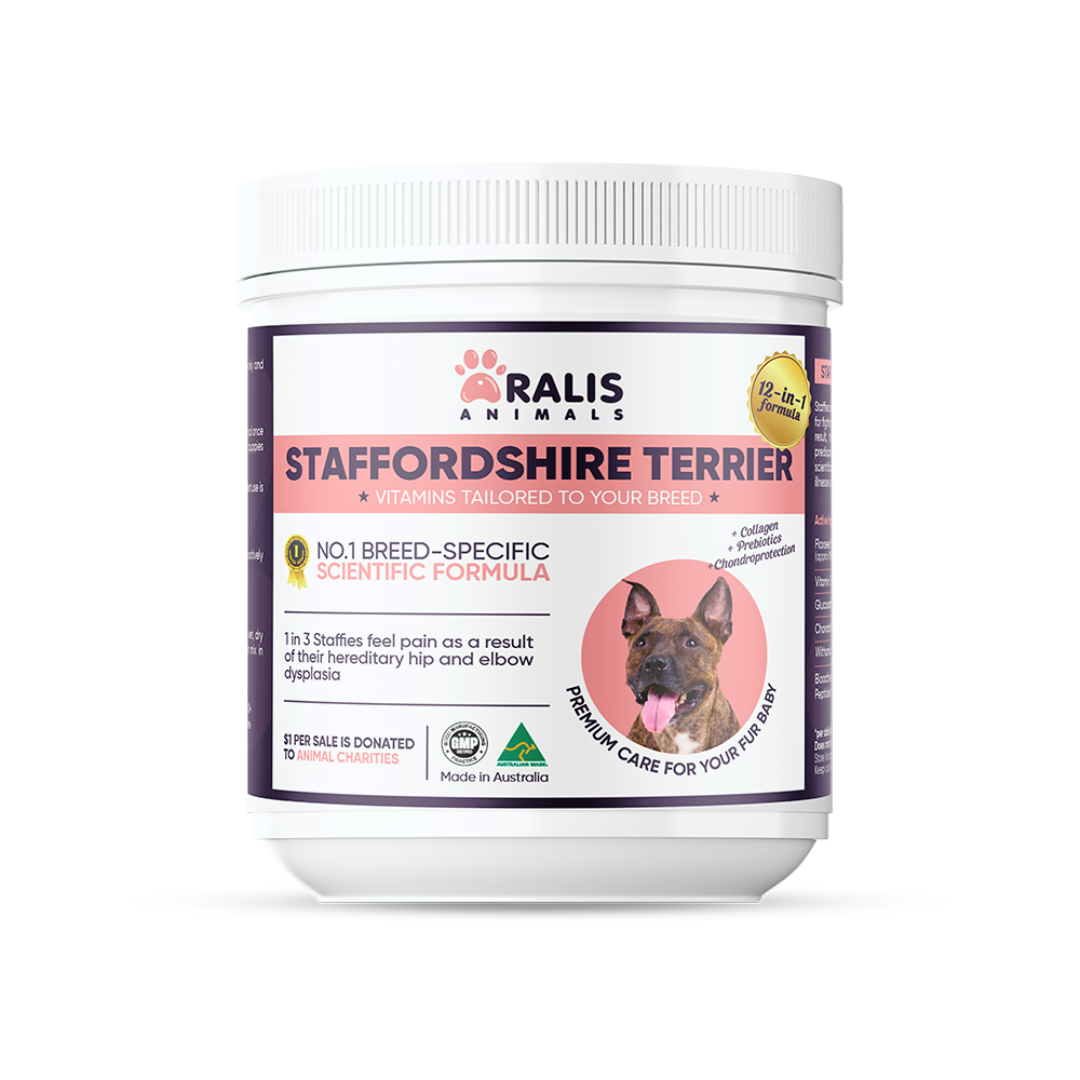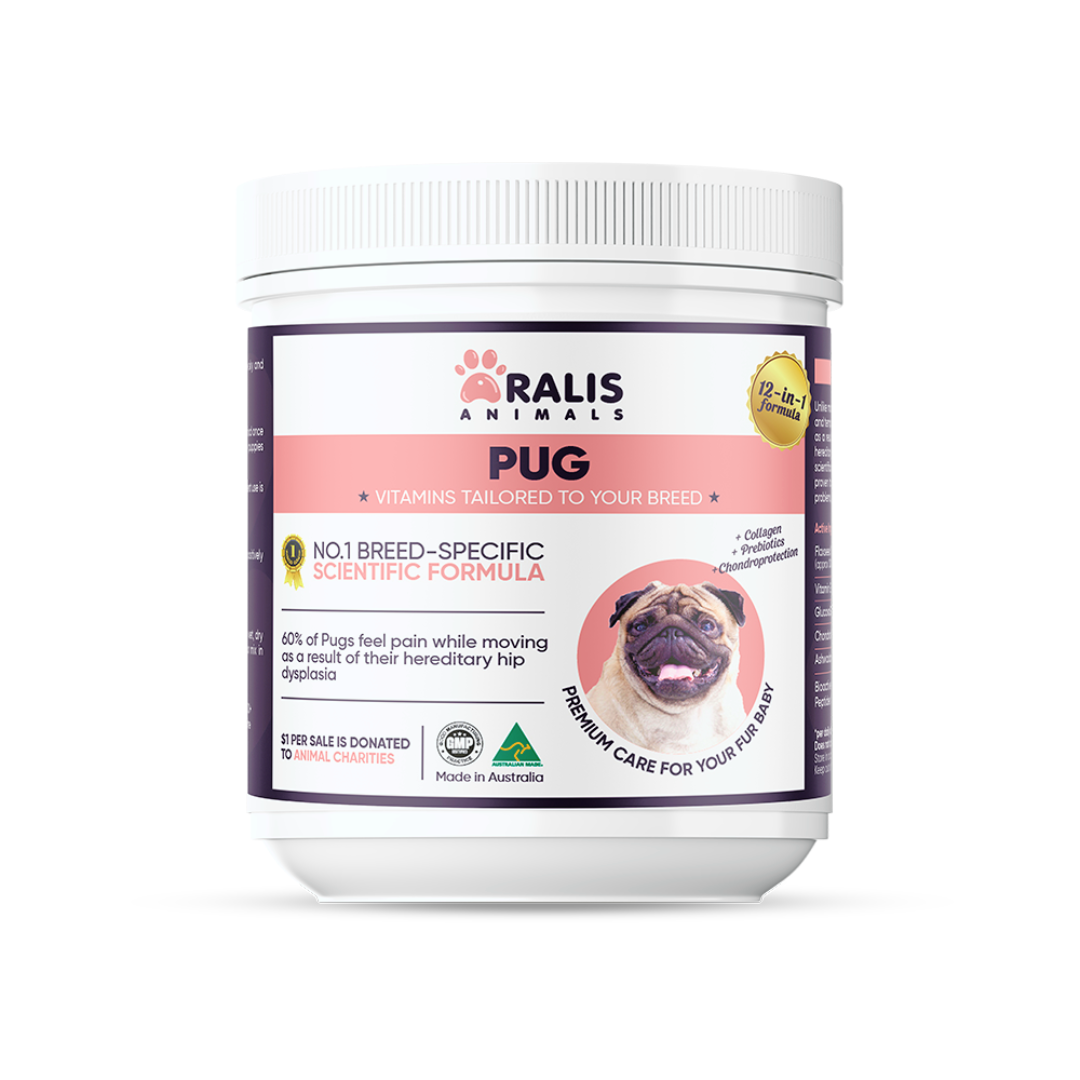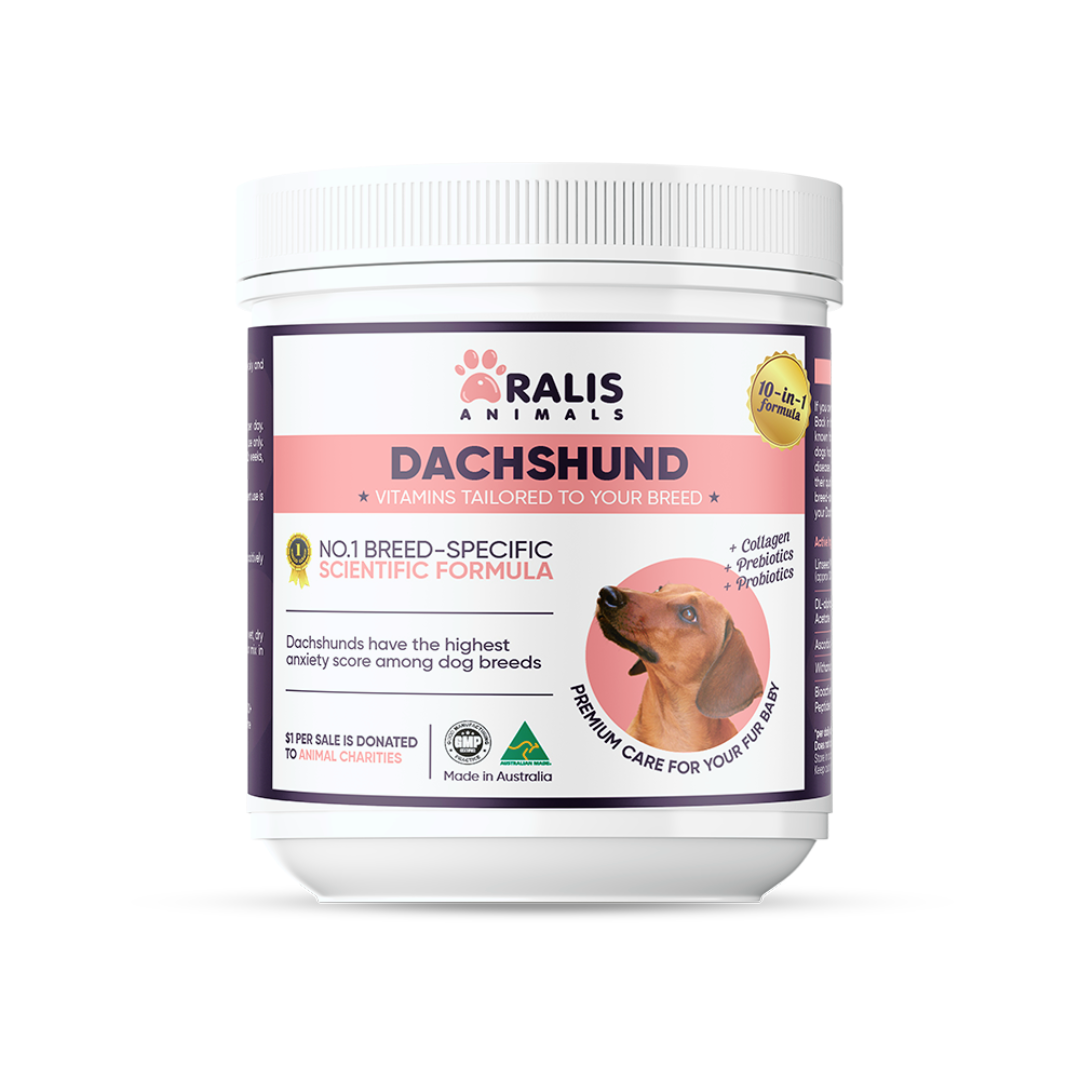What You Need to Know About Your Dachshund's Health and Traits
As a proud Dachshund owner, you know that these playful, low-to-the-ground pups are full of personality. But with their unique physical characteristics and breed-specific health concerns, it's essential to understand how to best care for your furry friend. In this comprehensive guide, we'll explore the common health issues Dachshunds face, from back problems and skin allergies to separation anxiety, and provide practical tips to help your pup thrive.
Dachshund Traits
Dachshunds, often affectionately referred to as "wiener dogs," are known for their distinctive long, low-slung bodies and short legs. This unique physique, combined with their lively and curious nature, makes them both endearing and prone to certain health challenges.
Physically, Dachshunds are characterized by their elongated spinal column and intervertebral discs, which can be susceptible to injury and degeneration. Their small stature also means they are prone to weight gain, which can exacerbate back problems and other health concerns.
In terms of temperament, Dachshunds are often described as bold, fearless, and independent. They can be loyal and affectionate with their families, but their strong-willed nature can also make them stubborn and challenging to train. Proper socialization and positive reinforcement are key to helping Dachshunds develop into well-adjusted companions.
Common Health Concerns in Dachshunds
As with any breed, Dachshunds are susceptible to a range of health issues that require vigilant care and management. Understanding these concerns can help you proactively address potential problems and ensure your pup's long-term well-being.
Back Problems and IVDD
One of the most significant health concerns for Dachshunds is intervertebral disc disease (IVDD), a condition that can lead to painful and potentially debilitating back problems. IVDD occurs when the discs between the vertebrae in the spine become weakened or ruptured, causing compression on the spinal cord. This can result in pain, paralysis, and even the need for surgery.
To help prevent and manage IVDD, it's crucial to keep your Dachshund at a healthy weight, provide appropriate exercise and activity levels, and avoid activities that may put excessive strain on their back, such as jumping on and off furniture.
Obesity
Dachshunds' long, low-slung bodies make them prone to weight gain, which can exacerbate back problems and other health issues. Maintaining a healthy weight through a balanced diet and regular exercise is essential for your Dachshund's well-being.
Skin Allergies
Many Dachshunds are prone to skin allergies, which can manifest as itchy, inflamed skin, hot spots, and other irritating symptoms. These allergies can be triggered by environmental factors, such as pollen or household chemicals, or by certain foods.
Identifying and addressing the underlying cause of your Dachshund's skin allergies is crucial. This may involve implementing a hypoallergenic diet, using gentle, fragrance-free grooming products, and exploring supplements that support skin health.
Separation Anxiety
Dachshunds are often deeply bonded with their owners and can develop separation anxiety when left alone for extended periods. This can lead to destructive behaviors, excessive barking, and other distressing symptoms.
To help manage separation anxiety, it's important to gradually acclimate your Dachshund to being alone, provide plenty of mental and physical stimulation, and consider anxiety-reducing supplements or calming aids when necessary.
Managing Dachshund Skin Allergies
Skin allergies can be a frustrating and persistent issue for Dachshund owners, but with the right approach, you can help your pup find relief.
Symptoms of Skin Allergies
The most common signs of skin allergies in Dachshunds include:
- Excessive itching, licking, or scratching
- Red, inflamed skin
- Hot spots or areas of hair loss
- Ear infections
Causes of Skin Allergies
Dachshund skin allergies can be triggered by a variety of factors, including:
- Environmental allergens, such as pollen, dust, or mold
- Food allergies, often to common protein sources like beef or chicken
- Contact allergies to household chemicals, grooming products, or other materials
Treatment Options
Managing your Dachshund's skin allergies may involve a multi-pronged approach, including:
- Switching to a hypoallergenic, limited-ingredient diet
- Using gentle, fragrance-free shampoos and grooming products
- Applying soothing, anti-inflammatory topical treatments
- Exploring allergy medications or immunotherapy under the guidance of your veterinarian
Supplements for Skin Health
In addition to these treatment options, certain supplements can help support your Dachshund's skin health and alleviate allergy symptoms. Look for products containing ingredients like omega-3 and omega-6 fatty acids, antioxidants, and probiotics, which can help reduce inflammation and promote a healthy skin barrier.
Addressing Separation Anxiety in Dachshunds
Separation anxiety is a common issue for many Dachshund owners, as these affectionate pups often form strong bonds with their families. Recognizing the signs of separation anxiety and implementing effective strategies can help your Dachshund feel more secure and comfortable when left alone.
Signs of Separation Anxiety
Symptoms of separation anxiety in Dachshunds may include:
- Excessive barking, whining, or howling when left alone
- Destructive behaviors, such as chewing, digging, or scratching
- Accidents in the house, even if the dog is housetrained
- Pacing, panting, or other signs of distress
Prevention and Treatment
To help prevent and manage separation anxiety in your Dachshund, consider the following strategies:
- Gradually acclimate your dog to being alone, starting with short periods and gradually increasing the time
- Provide plenty of mental and physical stimulation through toys, puzzles, and daily exercise
- Create a comfortable, calming environment with familiar items and soothing scents
- Consider using anxiety-reducing supplements or calming aids, as recommended by your veterinarian
Prioritizing Joint Health in Dachshunds
Given their unique body shape and susceptibility to back problems, maintaining optimal joint health is crucial for Dachshunds. Proper exercise, weight management, and targeted supplements can all play a role in supporting your pup's mobility and comfort.
The Importance of Joint Care
Dachshunds' long spines and short legs put significant stress on their joints, particularly the hips and knees. Maintaining a healthy weight and providing appropriate exercise can help reduce the risk of joint-related issues, such as arthritis and degenerative joint disease.
Joint Health Supplements
In addition to a balanced diet and regular exercise, joint health supplements can be a valuable addition to your Dachshund's care routine. Look for products containing ingredients like glucosamine, chondroitin, and omega-3 fatty acids, which can help support joint function and reduce inflammation.
Nutritional Support for Dachshunds
Providing your Dachshund with a balanced, high-quality diet is essential for their overall health and well-being. In addition to a nutritious, breed-appropriate diet, supplementation can help address specific health concerns and ensure your pup is getting all the essential nutrients they need.
Balanced Diet and Portion Control
Maintaining a healthy weight is crucial for Dachshunds, so be mindful of portion sizes and choose a diet that is appropriate for your dog's age, activity level, and any health conditions they may have.
Daily Multivitamins
A daily multivitamin can help fill any nutritional gaps in your Dachshund's diet and provide a broad spectrum of essential vitamins and minerals to support their overall health.
Probiotics for Skin and Gut Health
Probiotics can be particularly beneficial for Dachshunds, as they may help alleviate skin allergies and support a healthy digestive system.
Conclusion
As a Dachshund owner, understanding your pup's unique health needs and traits is essential for ensuring their long-term well-being. By staying vigilant about common issues like back problems, skin allergies, and separation anxiety, and providing targeted nutritional support, you can help your furry friend thrive and enjoy a happy, healthy life by your side.
Remember, every Dachshund is different, so be sure to work closely with your veterinarian to develop a personalized care plan that addresses your pup's specific needs. With the right approach, you can help your Dachshund live their best life and continue to bring joy and laughter to your family for years to come.





